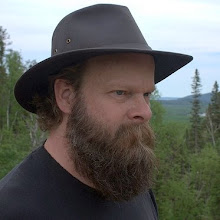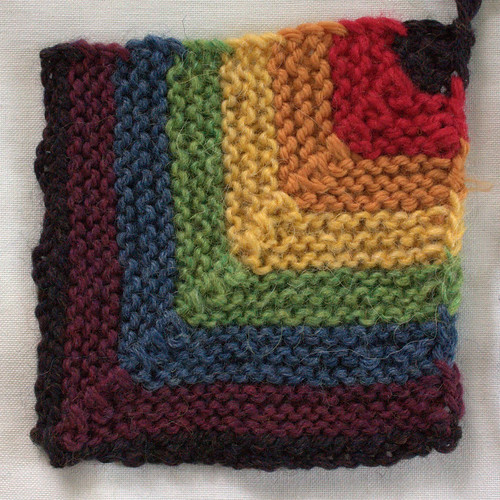
When I was little I lived in the same neighbourhood as my mother's parents and her mother's parents. My great grandparents, Dommy and Poppy, lived in a bungalow he had built before World War I. Across the street was the elementary school attended by my grandmother, later my mother and brothers, and finally me until Grade 2.
Mom had a special bond with her grandmother. When I was born, Dommy made me a quilt. It consisted of dark blue and white rectangles cut from simple cotton prints, arranged in a zigzag pattern.
Once a week after school I would meet Mom at Dommy's house across the street. I wasn't allowed to run in their house, and Mom was constantly warning me to watch out for Dommy and Poppy's feet.
Poppy had been a draftsman, and walked every day of his working life across the border to a Detroit patent office. He spoke little but smiled a lot.
Dommy had two Pekinese that yapped constantly and scared me. She had sore legs but large, strong hands and a low, gentle voice. She was a Tigers fan.
My grandmother believed Dommy's father (Freddie Frederick) was an illegitimate son of Kaiser Frederick. There were many clues in hindsight, but Dommy would not speak about family history.
She served me cookies and ice-cold milk, but I had to sit at the kitchen table. The cookie jar was Humpty Dumpty.
I didn't realize where the blue and white quilt had come from until many years later. Usually it lived in the cupboard, but whenever I was sick Mom would get it out to cover me on the couch.
Poppy died when I was seven, but Dommy lived many years longer. Her legs grew more and more arthritic. When she could not get around anymore, Aunt Gayle took her home and cared for her. Dommy's legs became twisted but her hands remained strong. Her eyesight began to fail, but she listened to every Tigers game on the radio.
When Aunt Gayle got cancer, Dommy had to move to a nursing home. She celebrated her 100th birthday on March 1, 1993. I missed the party, but many of my cousins were there. The Detroit Tigers sent her a team photo with all their signatures.
The following Christmas Day I took my two little daughters to see her. Brenna was only six weeks old. Marian would not go near the withered lady with the deep voice and long hands. Dommy couldn't see us, but knew who I was and remembered that I hadn't been at her birthday party, so she told me all about it.
I brought Brenna close to her. Dommy took the baby in those big, strong sewing hands, pressed her dry lips on the velvet scalp and said, "Bless you."
Dommy died in February 1996, a few days short of her 103rd birthday. She spent the last 15 years confined to bed.
I have one very precious things of hers: a fine bone China tea set from Japan, hand-painted in generous pink roses against a pale azure sky. Poppy gave it to her on Valentine's Day 1915.
In much worse shape, but just as precious, is the blue and white quilt made in 1964. I used it to cover my daughters when they were sick. It's torn in places and the indigo is fading, but I'll never let it go. The herringbone zigzag pattern reminds me of how generations interlock, an effect also suggested by this mitred square.





